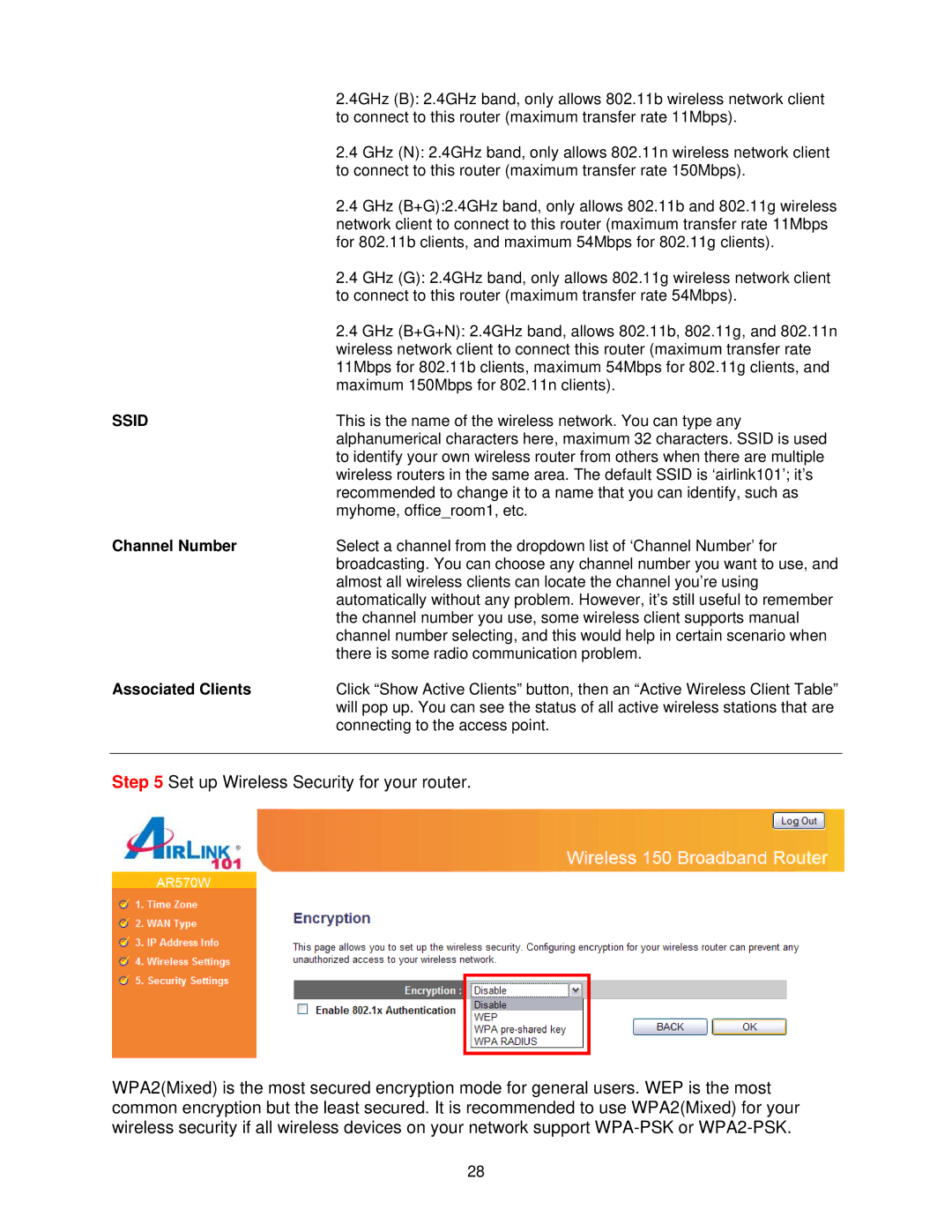
| 2.4GHz (B): 2.4GHz band, only allows 802.11b wireless network client |
| to connect to this router (maximum transfer rate 11Mbps). |
| 2.4 GHz (N): 2.4GHz band, only allows 802.11n wireless network client |
| to connect to this router (maximum transfer rate 150Mbps). |
| 2.4 GHz (B+G):2.4GHz band, only allows 802.11b and 802.11g wireless |
| network client to connect to this router (maximum transfer rate 11Mbps |
| for 802.11b clients, and maximum 54Mbps for 802.11g clients). |
| 2.4 GHz (G): 2.4GHz band, only allows 802.11g wireless network client |
| to connect to this router (maximum transfer rate 54Mbps). |
| 2.4 GHz (B+G+N): 2.4GHz band, allows 802.11b, 802.11g, and 802.11n |
| wireless network client to connect this router (maximum transfer rate |
| 11Mbps for 802.11b clients, maximum 54Mbps for 802.11g clients, and |
| maximum 150Mbps for 802.11n clients). |
SSID | This is the name of the wireless network. You can type any |
| alphanumerical characters here, maximum 32 characters. SSID is used |
| to identify your own wireless router from others when there are multiple |
| wireless routers in the same area. The default SSID is ‘airlink101’; it’s |
| recommended to change it to a name that you can identify, such as |
| myhome, office_room1, etc. |
Channel Number | Select a channel from the dropdown list of ‘Channel Number’ for |
| broadcasting. You can choose any channel number you want to use, and |
| almost all wireless clients can locate the channel you’re using |
| automatically without any problem. However, it’s still useful to remember |
| the channel number you use, some wireless client supports manual |
| channel number selecting, and this would help in certain scenario when |
| there is some radio communication problem. |
Associated Clients | Click “Show Active Clients” button, then an “Active Wireless Client Table” |
| will pop up. You can see the status of all active wireless stations that are |
| connecting to the access point. |
Step 5 Set up Wireless Security for your router.
WPA2(Mixed) is the most secured encryption mode for general users. WEP is the most common encryption but the least secured. It is recommended to use WPA2(Mixed) for your wireless security if all wireless devices on your network support
28
